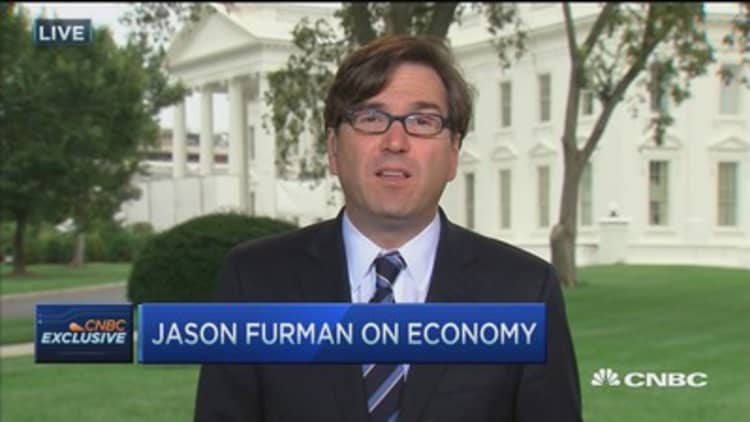Not many people actually like Obamacare's dreaded "Cadillac Tax," including, reportedly, Hillary Clinton. But that doesn't mean it will necessarily get repealed before it starts in 2018.
A new survey shows that while that tax, which targets high-cost, employer-based health plans, is at first glance broadly unpopular with the public, opinions change when people are told details about the tax's costs or savings.
Overall, 60 percent of respondents in this month's Kaiser Health Tracking poll said they oppose the tax when asked about it.
The tax will impose a 40 percent charge on the cost of employer-sponsored health plans that exceeds certain thresholds — $10,200 for individual coverage and $27,500 for family coverage, as of 2018. An insurer will have to pay the tax if it provides that coverage; otherwise, an employer will have to pay the tax if the plan is self-funded, as many job-based plans are.
The tax is expected to affect about one in four employers when it starts in 2018, and to rise thereafter to 30 percent of employers in 2023, and 42 percent of employers in 2028.
In a report on the survey's findings, Kaiser noted that the unpopularity of the Cadillac Tax is "reflective of an overall anti-tax sentiment among Americans."
"However," the authors wrote, "when the public is presented with arguments about how the tax would affect health-care costs, opinion can be swayed."
On the one hand, when opponents of the Cadillac Tax were told that it could help lower overall health-care costs in the United States, 27 percent changed their minds about the levy, "pushing overall support [for the tax] ... to 55 percent," Kaiser said.
On the other hand, opposition to the tax grew much stronger — to 75 percent — when initial supporters of the tax were told that it would likely cause workers to pay more out of pocket for health-care services in the forms of deductibles and co-payments.
Kaiser's survey was based on a sample of 1,202 adults, and had a margin of error of 3 percentage points.
Opponents of the tax, who include the U.S. Chamber of Commerce, have focused their arguments against it on the costs it will present to companies. They also claim it will lead to a reduction of benefits to employees.
However, the tax is considered an important part of the Affordable Care Act, both for its ability to generate revenue and its potential to slow the increase in health-care cost inflation.
It's estimated that the Cadillac Tax will raise $87 billion for the federal government over a decade, which will help fund subsidies that lower the cost of health coverage for people who buy Obamacare insurance plans on government-run exchanges, and to provide coverage to adults under expanded Medicaid benefits.
If Congress moved to eliminate the tax, it would face pressure to replace that revenue, or be left with the option of increasing the federal deficit.

By its steep levy on high-cost, job-based insurance plans, the Cadillac Tax is also designed to put a brake on overall health spending by discouraging overuse of medical services.
Kaiser Family Foundation Senior Vice President Larry Levitt recently called the Cadillac Tax "one of the strongest cost-containing measures in the ACA," Levitt said.
In addition to the economic and financial arguments for tossing out the levy, opponents of the Cadillac Tax also face the difficulty of overriding a likely veto by President Barack Obama if Congress moves to get rid of the tax while he remains in office.
However, on Tuesday, The New York Times reported that Hillary Clinton, who is seeking the Democratic nomination for president, plans to "speak out" against the Cadillac Tax in coming days. The Times said that Clinton's aides had told Randi Weingarten, the president of the Americans Federation of Teachers, that she intends to come out against the tax.
Unions have been among the critics of the tax, because many health benefit plans negotiated as part of collective bargaining agreements would be subject to it.
The Times also reported that "those briefed on (Clinton's) plans said she will have a method of replacing the lost revenue in the Cadillac tax through other means."




